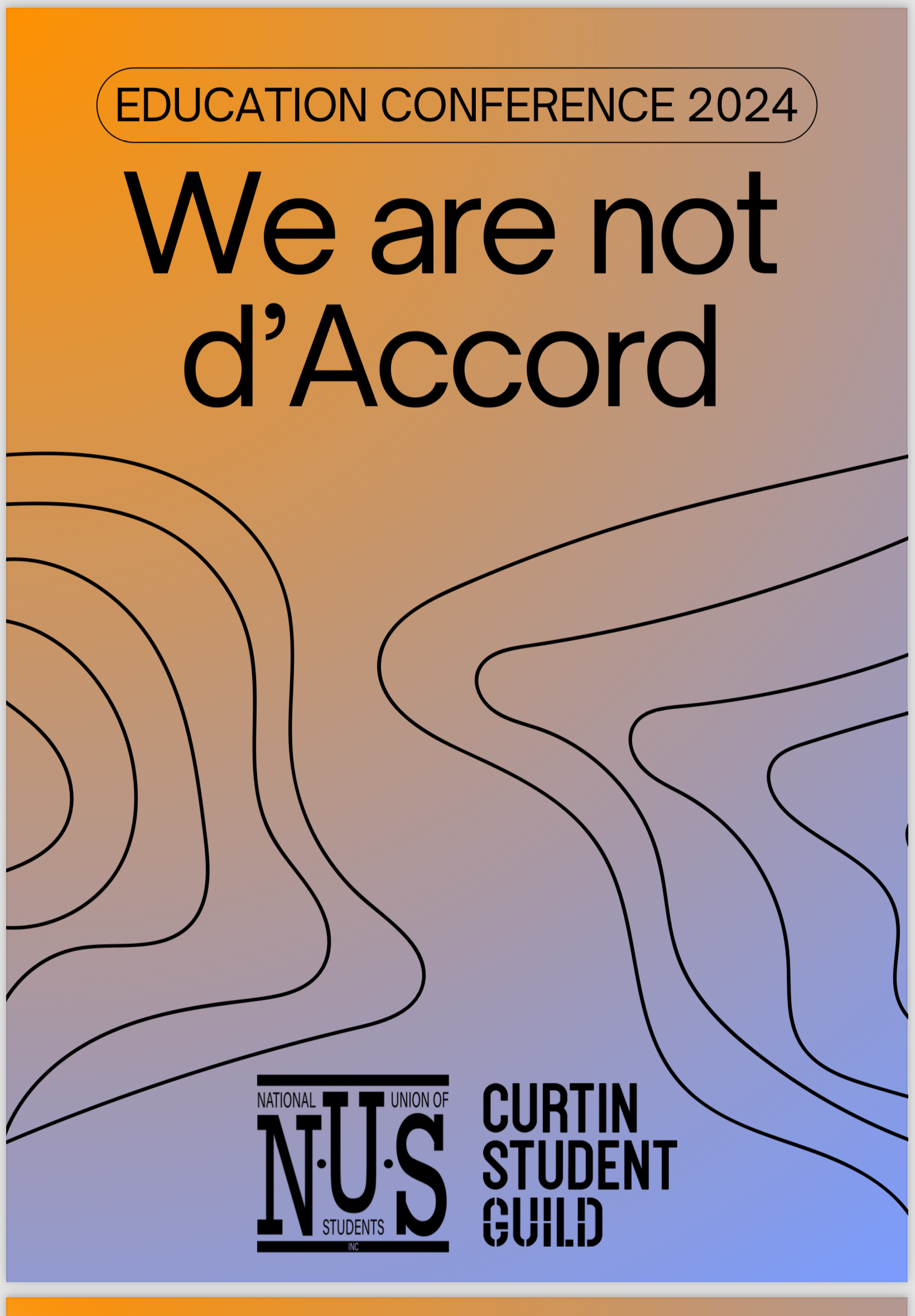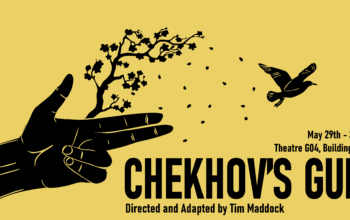Every year, students from different universities around Australia, members of the National Union of Students (NUS), get together at a conference for several days to discuss, debate and learn about student politics and the direction of student life. The Education Conference this year is taking place at Curtin University in Perth and I had the pleasure to participate and report on it.
Here’s what happened on the first day of EdCon.
After checking in, signing a code of conduct and being welcomed to country, I made my way to the first plenary where we heard from the education office on issues such as working paid placements, HECS-HELP indexation and much more.
The panel noted that it has been 18 years since VSU (Voluntary Student Unionism) was brought into Australia and this year, NUS are working with campuses and the government to bring back all student unions across the country.
This years campaigns include the end of placement poverty, which are now only paying placement students a shameful $8 an hour; the freezing of HECS-HELP indexation as it rises quicker than wages in our cost-of-living crisis; national racism report as Islamophobia and racism continue to affect campuses; visa assist programs; and quality assurance (TEQSA), which are trying to create a free and accessible governance training for all student unions to use.
At the mention of paid placement poverty, the room exploded into chaos with multiple people screaming, “they get paid 8 dollars an hour!”
NUS are also pushing for the campaigns to reverse job ready graduates; grant visa assistance/ international student visas; continue the fight for equal wages for placement students to be included under the fair work umbrella; conduct a study on national racism, and manage growth funding. To this last point, the speaker made a confusing comment, which obviously struck a chord with some students, on how “it’s interesting.” She got a very angry response that, “it’s not interesting. It’s about pumping students for more money.”
The Education Office panel were then asked questions on these issues. Each was asked what they were working on at present. University of Sydney answered that students were campaigning against placement poverty and pushing to reach beyond the $320 a week that was reluctantly conceded to students studying nursing, teaching or social work starting from July 2025. It was noted that police students are being paid $1300 a week for their short 16-week course amounting to $30 984 – in attempt to keep students enrolled in and working for the police force – while our placement students complete up to 26 weeks of unpaid work.
University of Sydney also mentioned the disappointment in discovering that 25 philosophy units are looking to be replaced with 5 broad courses. At this, students around me yelled, “shame!”
Lastly, University of Sydney spoke of their efforts in dismantling the ties between the university and nuclear weapons and the assistance in genocide.
The University of Queensland spoke of the placement issue, as well as, the cost of living crisis that continuously impacts students ability to study and live; the right to access education in a more flexible way; acknowledgement of financial stress from students, and continuing to advocate for these issues.
Deakin University spoke of their monthly workshops with students throughout all of their campuses to build connections across the university. They mentioned the connections that have been growing with their library and their lack of thechnical issues at present. They stated that they advocated directly to the vice chancellor for the IT support and got results so that students now know where to go to look for support in IT and any other aspect of student life on campus. Mandated sexual issue training on campuses have been implemented as well as need for evidence for special consideration policy so that there is a new standardised special consideration outcome.
When asked how they tie education and climate change, they answered, “education is the cornerstone of social mobility.” They stated that the Australian Conservation Foundation had raised $4500 for charity for threatened species and that from the 1st of July they hope to see everyone using masking tape instead of plastic tape.
“Welfare matters impact education matters, it’s very important to recognise the intersectionality and connection between both areas. The focus is the welfare of students and the cost of living that’s impacting it.”
In response to pressure about the placement poverty, Deakin stated that, “I quite often have to advocate for both because there is a lack of understanding of the difference between the two.” Another uproar from the crowd, of which I caught, “There is no lack of understanding as to why the Labor government is doing this.”
University of Sydney, when asked, stated that their placement poverty campaign structure is similar to their own student union structure: “not all groups initially saw the value of the campaign … it’s the students coming together and uniting the student voice. It gives them space to come together and form a national campaign.” As well as this, University of Sydney is working towards the abolishment of militarism on campuses and advocating for disability justice.
When asked how they go about working with their university, Deakin answered, “working with the university gets nothing done. We are a student union and we focus on deconditioning.”
“There are students getting suspended right now for the Gaza solidarity camps and you’ve done nothing to back them up,” said a student, to which they got a silent response.
Further, “if you shout at the university they’re not going to hear you and they’re probably gonna shut it out so we accept anything that is good,” after which they mentioned the IT support again.
University of Sydney disagreed, they said, “we take the oppositional stance to management because they are very liberal and monetised, they only respond to money. We do yell at management. That’s the most we’ve heard from management all year. They will listen to the students when we’re loud enough.”
They went on to say that the ties with fossil fuel companies have been covered up and the divestment of these ties are not going to happen and how they need to work against the enemy which is the corporate university and against the systemic issue.
University of Sydney mentioned the time when Tony Abbott visited them on campus and they protested his visit by saying that no liberal representative would be welcome on campus for things they did to refugees and LGBTQ+ communities.
“That’s why we take the oppositional approach to management – because they’re not our friend and we need to focus on bettering the students.”
Finally, they stated, “With the establishment of SAP groups a lot of the work has been on one person. In general the best opportunity is to have student unions jump on board but also work together to have this become an important issue nation-wide. If you’re creating a radio-silent environment, it’s not creating that buzz. Respond as much as possible!”




